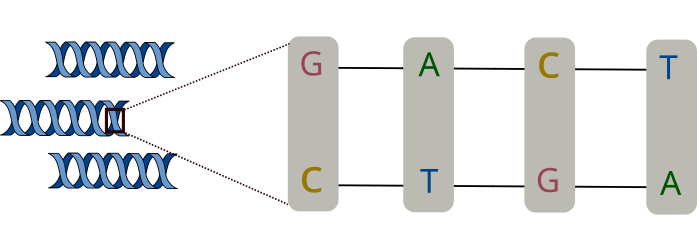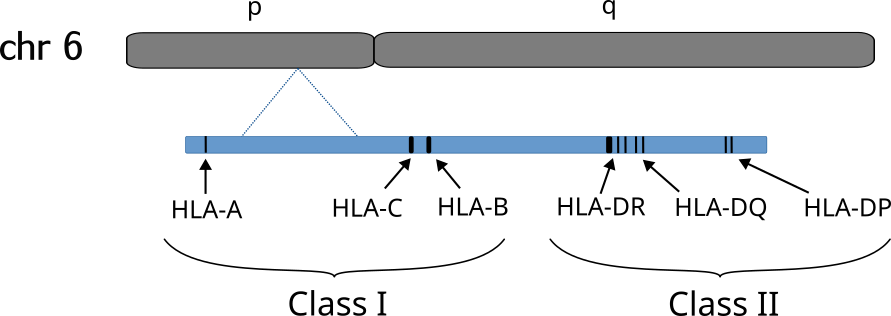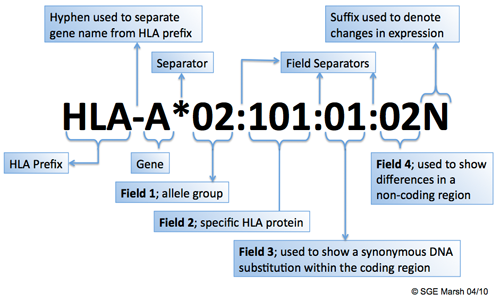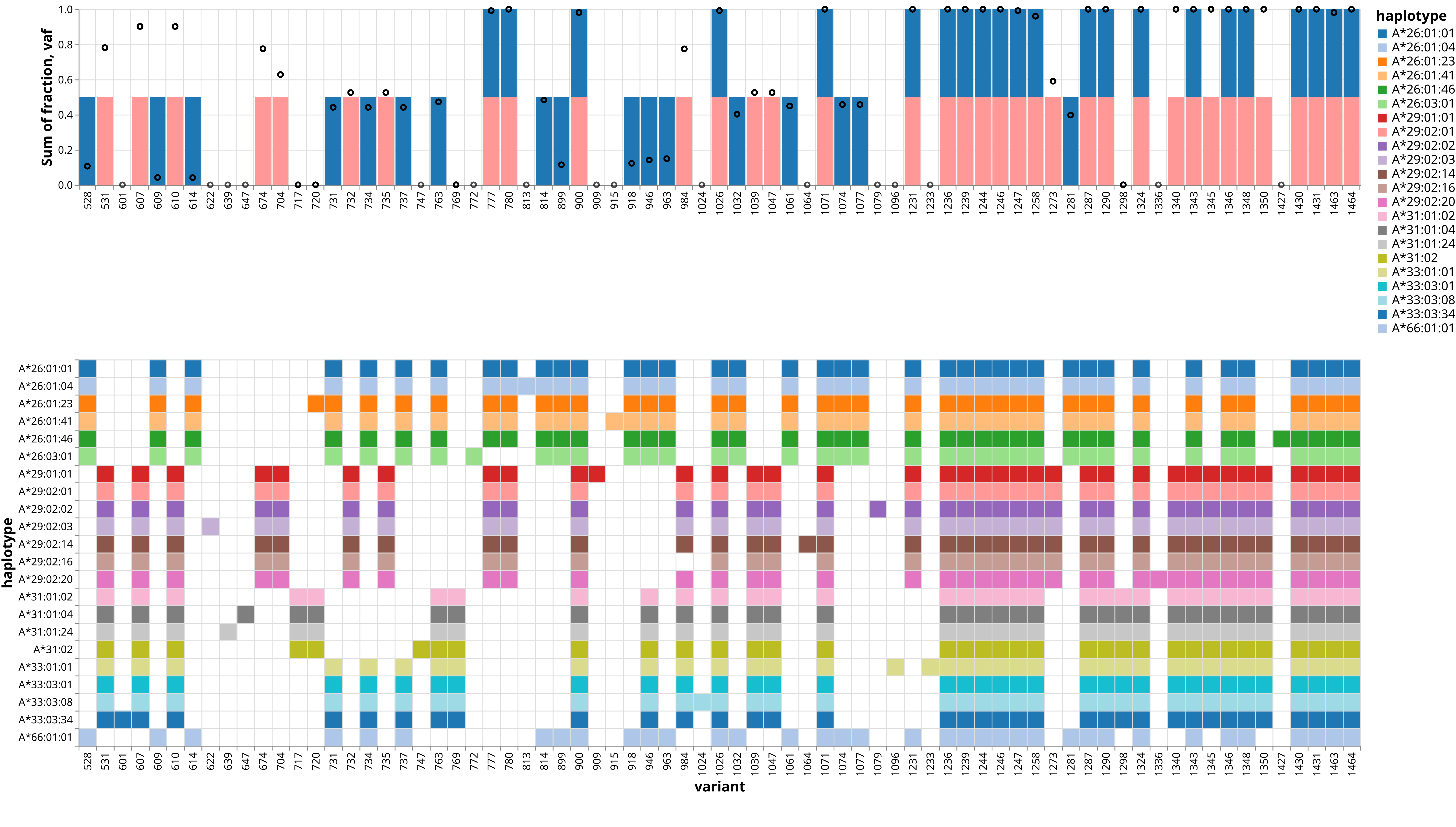Haplotype quantification with Orthanq
Orthanq is a framework for quantifying haplotypes from DNA sequencing (exome or whole genome) data. A haplotype is a biological entity that carries genetic information to be inherited from a single chromosome of same parental origin. It can represent a set of single nucleotide polymorphisms (SNPs) or alleles. With the concept of HLA haplotypes in mind, Orthanq's functionality can be used to perform HLA typing.
Human Leukocyte Antigen (HLA)
The human leukocyte antigen (HLA) system (also known as major histocompatibility complex (MHC)), located in the short arm of chromosome 6, a set of genes playing a central role in the immune system. The HLA system consists of three main classes, HLA-I, HLA-II and HLA-III. HLA genes show a relatively high genomic variability and this variability plays a major role in the activation of specific cells of the adaptive immune system in the context of infection, cancer and autoimmunity.
HLA Typing as Haplotype Quantification
HLA typing is the process of determining the HLA alleles of each HLA locus/gene of a given sample. An application of haplotype quantification with Orthanq is HLA typing. (image credit: https://hla.alleles.org)
Transparency and diagnostics
With Orthanq, it is possible to track the contribution of variants to the model decision by diagnostic plots.
Authors and Contributors ⓘ
Groups, Institutes, Companies, and Organizations ⓘ
- University of Duisburg-Essen
- Universität Duisburg-Essen



